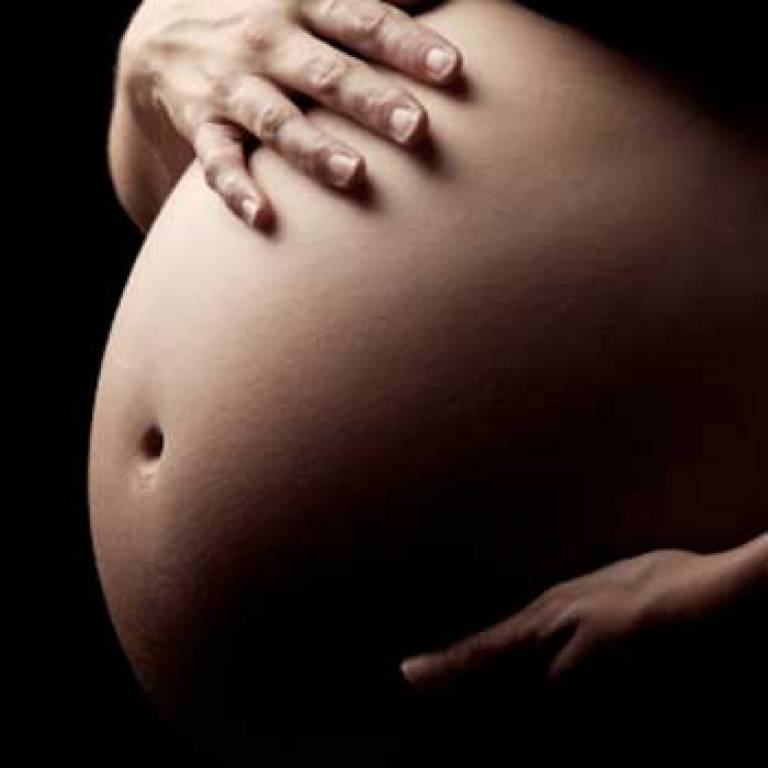Researchers say pregnant mothers should be given vitamin D
5 July 2010
Links:
 ucl.ac.uk/ich" target="_self">UCL Institute of Child Health
ucl.ac.uk/ich" target="_self">UCL Institute of Child Health
Researchers at the UCL Institute of Child Health (ICH) are calling for the swift reintroduction of vitamin D supplements to pregnant women in the UK.
In an article published online today by the British Journal of Nutrition (BJN), the authors argue that despite a growing body of evidence that links vitamin D deficiency to complications in pregnancy and poor neonatal health, the UK remains the only one of 31 European countries that doesn't have a set vitamin D recommendation for women of reproductive age, while also failing to endorse a daily supplement to expectant mothers.
Co-author Dr Elina Hyppönen, a reader in epidemiology and public health at the ICH, said: "The incidence of vitamin D deficiency in pregnant women in Britain is unacceptably high, especially during winter and spring. This is compounded by a lack of exposure to sunlight and the limitations of an average diet to meet the optimal need.
"In the most severe cases, maternal vitamin D deficiency can be life threatening to a newborn. We believe that the routine provision of a daily supplement throughout pregnancy would significantly decrease the number of mothers who are clearly vitamin D deficient, reducing related serious risks to their babies.
"Our take on vitamin D supplementation in the UK has seen many changes over the decades and we can see clearly from past experience that a proactive approach to supplementation has coincided with a much lower incidence of deficiency linked diseases such as infantile hypocalcaemia and rickets."
Current data for the UK shows that women are more likely to be vitamin D deficient than men (9.2 and 6.6 per cent respectively). Pregnancy poses a particularly high risk situation, with one in four pregnant mothers being vitamin D deficient (below 25nmol/l) during winter and spring, with nearly all (90 per cent) having concentrations considered insufficient (below 50nmol/l).
In the article, Dr Hyppönen and her co-author, Barbara J Boucher (Queen Mary University of London), draw on historical data that supports the case for a daily dose of at least 10µg of vitamin D to prevent vitamin D deficiency in pregnant mothers, and recent evidence suggesting potentially wide-ranging benefits for the prevention of deficiency for the health of the mother and her child.
Dr Hyppönen said: "This risk of vitamin D deficiency is largely being overlooked by our health professionals. Under a current government scheme, pregnant women who are on a low income are entitled to receive supplements free of charge, but there is no strong evidence to suggest that this group are at greater risk.
"What's needed is a unified approach that will ensure that all expectant mothers, regardless of their economic status, are informed of the benefits of taking a regular supplement throughout pregnancy."
For more information about the ICH, follow the link above.
Image: Pregnant mother.
UCL context
UCL, Great Ormond Street Hospital for Children NHS Trust, Moorfields Eye Hospital NHS Foundation Trust, the Royal Free Hampstead NHS Trust and UCL Hospitals NHS Foundation Trust (UCLH) together make up UCL Partners, designated one of the UK's first academic health science centres by the Department of Health in March 2009.
UCL Partners brings together the combined skill and expertise of its clinicians and researchers to focus on child health, eyes and vision, immunology and transplantation, infectious diseases, neurological disorders, women's health, cardiovascular research and cancer.
Related stories:
UKCMRI: launch of science vision and new building designs
UCL researching light therapy as a potential treatment for epilepsy
 Close
Close

